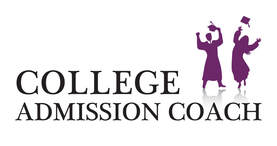Career & Major Exploration
Self-Assessments
Career exploration starts with understanding more about yourself. Here are some free tools to help you do that.
Explore Careers & Majors
Once you know more about yourself it's a good idea to explore how your interests, skills and work values relate to majors college majors and career choices.
Career exploration starts with understanding more about yourself. Here are some free tools to help you do that.
- The O*Net (created for the US Department of Labor) has an interest assessment and related career exploration tool based on John Holland's "Theory of Vocational Development." Briefly, this theory maintains that based on your preferences and personal style you can be loosely classified into six different categories: realistic, investigative, artistic, social, enterprising, and conventional. College majors and careers can also be organized into these same six categories. If you choose a college major and career from one of the six categories that is consistent with your preferences and personal style, you are more likely to be satisfied with your choice. Take the assessment, record your results, and check-out job matches.
- Combined interests and values assessment
- Carl Jung and Isabel Briggs Myers developed a personality test that is widely used in business, and is also helpful when thinking about careers. Take a version of this assessment and record your personality type
Explore Careers & Majors
Once you know more about yourself it's a good idea to explore how your interests, skills and work values relate to majors college majors and career choices.
- The Bureau of Labor Statistics is a great source for learning about careers and the job outlook for various professions. Check it out!
- In the My Next Move web site, use the "Search Careers with Key Words" option or the "Browse Careers by Industry" choice to learn more about a specific career including the knowledge, skills, abilities, personality traits, technology you might use, required education and job outlook or careers that interest you
- What For Work has awesome job descriptions
- My Future is produced by the US Military and helps you explore career options, including those available through the military
- My Majors is useful if you want to know what sort of classes a given major requires, some schools that offer the major and possible careers and salaries
- Some students pick a major they feel passionate about and figure out what career options they have afterwards. This site from the University of North Carolina Wilmington "What Can I Do With a Career in...?" offers great suggestions, plus key words and skills you could outline in your resume, and trade organizations that pertain to the major
- RoadTripNation has a great assortment of career videos.
- Even if you are not from California I think you'll like CA Career Zone. You can skip the assessment section if you already did some of the assessments listed above, but I do suggest you use the "Explore Job Families" section to check out potential careers and watch videos and the "Get a Reality Check" section to think about your future budget
- Career One Stop is sponsored by the US Department of Labor and is a great resource for self-assessments. This skills inventorey is valauable if you already have some amount of work experience. If so, do the skills inventory and record your results
- Job shadows are a great way to explore careers of interest. Here are some job shadow tips.
- If youa re considering nursing programs, Top Registered Nurse is an awesome resoource and has a great feature that allows you to look at the nursing programs in every state. Check it out! I also like this Nursing Carrer Guide for People With Disabilities.
"Caroline is the best! Before I built a college list she helped my discover potential majors and careers that would suit me.
I never could have gotten through everything without her."
- Emily, student
I never could have gotten through everything without her."
- Emily, student
